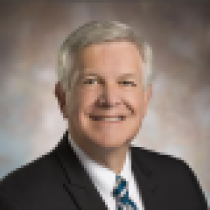Marschall S. Runge, M.D., Ph.D., is executive vice president for Medical Affairs at the University of Michigan and dean of the U-M Medical School. Runge earned his M.D. from the Johns Hopkins School of Medicine. He completed a cardiology fellowship at Harvard’s Massachusetts General Hospital, was a faculty member at Harvard and also served as executive dean for the University of North Carolina School of Medicine. Runge has been a physician-scientist for his entire career, combining basic and translational research with the care of patients with cardiovascular diseases and education. He is the author of over 200 publications in the field and holds five patents for novel approaches in health care.
Contact information







